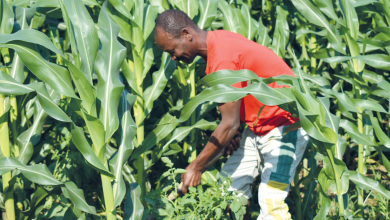Rethinking city governance, food hygiene
The population in most cities across sub-Saharan Africa is growing rapidly.
Due to population pressure, governments are struggling to ensure healthy security controls in informal markets.
More people are migrating to cities as gateways to better economic opportunities and living standards.
Rapid urbanisation will continue in the coming years.
In 2018, the United Nations projected that the world’s population will increase from 4.4 billion to 6.7 billion by 2050.
Countries need to improve service provision in cities to achieve their sustainable development goals, including the UN 2030 Agenda.
In sub-Saharan African cities, urbanisation is creating new challenges, including low access to clean water and sanitation; poor waste disposal and overwhelmed market infrastructure.
In 2023, renowned global urban development scholars, Dr Liam Riley and Emmanuel Chilanga, concluded a two-year study in Mzuzu under the African Food Security Urban Network. The findings on accessibility of sanitary facilities among food sellers in African secondary cities show that the exodus to the city poses challenges to local authorities when it comes to improving sanitation facilities and ensuring good hygiene, partly due to a lack of inspections.
This fuels foodborne disease outbreaks in informal markets.
In Malawi, cholera claimed 1760 lives from the 58 944 cases reported from 2022 to 2023.
The country needs to improve access to safe water and sanitation in most districts and cities, not just a humanitarian response to disease outbreaks like Covid and cholera.
There is a need for critical thinking on measures to avert, mitigate and contain health crises.
This will improve the situation in all areas, including cities prone to foodborne diseases.
The country is mostly hit by cholera during the rainy season. The toll is higher in populous and unplanned townships dominated by low-income earners.
The population of urban poor in cities is growing, especially those in the informal markets.
Foodborne infections are common in areas where poverty is rampant. Most people rely on the informal market, shunning supermarkets and chain stores.
Unfortunately, in the informal market, authorities happily collect fees, but seldom provide adequate water, sanitation, safety inspections. They collecting market revenues without investing in and improving the affected community.
Malawi aspires to become a self-reliant upper middle-income economy by 2063 and urbanisation is among the top priorities to achieve the Malawi 2063 targets.
This calls for more investment in infrastructure development and waste management in cities.
There is also a need to rethink how secondary cities, like Mzuzu, should look and serve their population by 2063.
As cities should be vibrant economic zones, they cannot flourish without sustainable waste management.
Although government acknowledges the importance of food safety, it rarely enforces the laws and policies.
This increases the risk of preventable infections as the poor risk their lives to end meets by trading in poor environments.
The recurrent cholera outbreaks in Malawi’s cities should be awaken policymakers to identify the risk factors and improve the situation.
Furthermore, the country requires sound policies will effectively address the health implications in cities nationwide.
The country should show commitment to achieving UN Sustainable Development Goals (SDGs) to end poverty, provide universal access to clean water and sanitation, eliminate inequities, ensure sustainable cities and communities and strengthen peace, justice, partnerships and governance institutions.
This requires national leadership to excise political will on decentralisation, which will enable cities to act quicker than it currently does because the central government calls the shots when it comes to allocating financial resources.
Globally, people shifting to cities are increasing, especially informal traders.
There is a need to create sanitation infrastructure and promote hygienic behaviour among marketplace users. National governments in sub-Saharan Africa need to rethink how they approach food safety in informal markets.
One approach, for example, would be a multi-stakeholder sectoral framework that involves the government as a policy actor, non-governmental organisations and trader committees to incorporate new developments into decision-making.
This will help to identify challenges together with the people who are most affected by a poor environment. This way, no one will be left behind.


